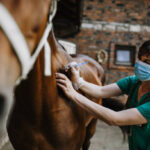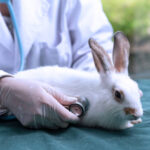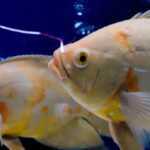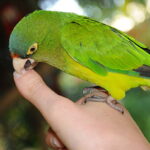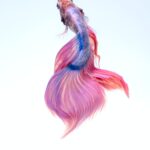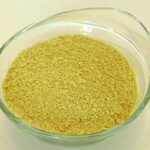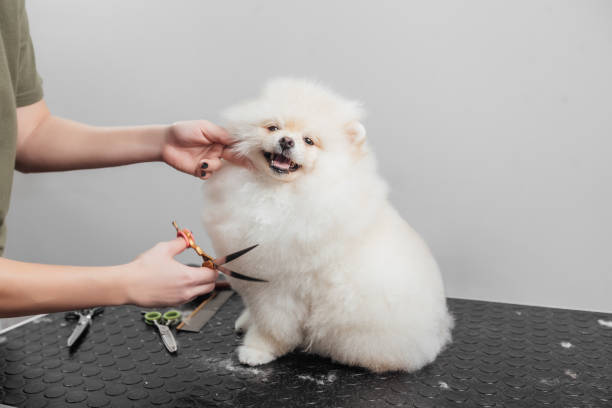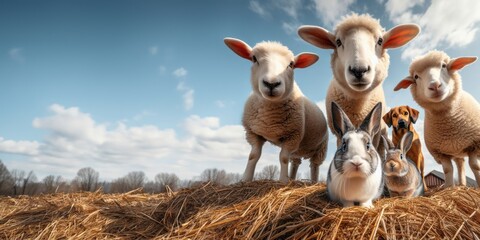The Daisy Dog is a delightful miniature mix of some of our most beloved small dog breeds. This adorable pup combines the intelligence of the Poodle, the curiosity of the Bichon Frise, and the outgoing nature of the Shih Tzu. The result is a playful and friendly family dog that rarely barks, making it an ideal choice for those who live in apartments. The Daisy Dog is full of fun character traits that come from its Poodle, Bichon Frise and Shih Tzu heritage.
Temperament & Intelligence of the Daisy Dogs
The Daisy Dog breed was developed to be a delightful companion. Over time, the traits that made them great as companion dogs were selectively bred to enhance those characteristics while excluding the others. As a result, they possess many of the personality traits that people look for when selecting a companion animal.
Due to their big personalities, similar to other small breeds, these dogs are often called “personality animals,” which makes them quite entertaining to own. They can be energetic but not as hyperactive as some other breeds. They usually have brief periods of activity followed by long periods of rest. These dogs are perfect for those families who want to spend ten minutes playing with them and then cuddling on the couch. However, they are not suitable for high-intensity physical activities like hiking.

Most Daisy Dogs are intelligent and people-oriented, so they usually respond well to any training. Although they may not have the persistence of other breeds, they will listen to their owners in typical situations. However, they can easily lose focus due to new people and dogs, making their recall unreliable. Hence, they cannot be trusted to roam around off-leash.
This breed is known to be “cuddly,” similar to other small dogs.
These dogs generally get along well with other dogs and people. However, socialization at an early age is crucial. Otherwise, they may become protective of their people, lacking the confidence to accept strangers into their homes. Thus, it is vital to expose them to various people and situations during their puppyhood.
Are These Dogs Good for Families?

These dogs were bred to be family pets, as they are friendly and love to be around people. They don’t require a lot of exercise, which makes them perfect for families looking for a lap dog. They get along well with older children as long as they aren’t expected to participate in any strenuous physical activities.
However, they may not be the best choice for families with young children. While some of these dogs do enjoy being around kids, socialization is crucial. If they don’t interact with children when they’re young, they may not want to be around them when they’re older. Moreover, their small size increases the likelihood of them getting injured and becoming afraid of smaller children.
This fear can lead to biting, which is not uncommon among small dogs and children. Usually, these dogs are comfortable around calm and gentle kids who know how to handle dogs, but they may not be suitable for extremely active children.
Does This Breed Get Along With Other Pets?

Yes, this canine is often perfectly fine with other dogs, assuming that they are socialized correctly. When they are given plenty of opportunities to interact with other animals, they often figure it out quite easily. However, if they are not given plenty of playtime with other dogs as puppies, they can be fearful when they get older. Socialization is essential for a friendly puppy.
They do not have a high prey drive, so they usually don’t chase cats with much persistence. Many may see cats as play-things if they are not provided with an opportunity to socialize with cats when they are younger. However, most Daisy Dogs raised around cats are perfectly fine with them.
Things to Know When Owning a Daisy Dog
Food & Diet Requirements :
The Daisy Dog requires a high-quality, commercial diet that contains plenty of fat and protein, preferably from meat sources. It is best to avoid foods that contain low-quality ingredients, such as wheat and corn. While these dogs are not prone to many health problems that require a special diet, every dog is different, and some may develop issues that require a prescription diet. It is recommended to consult with your veterinarian regarding your dog’s nutritional needs.
It is important to provide your Daisy Dog with a diet appropriate for their life stage. Puppies need different nutrition than adult dogs due to their growth requirements. Therefore, it is recommended to feed your puppy a puppy diet until they have reached their adult size.
Senior dogs do not require a special diet unless they have specific health concerns such as eye and coat issues. There are no specific dietary requirements that all senior dogs have, and many may do fine on an adult diet. If switching to a senior diet, it is important to choose one that is tailored to your dog’s particular health issues.
Exercise :

While these dogs don’t need extensive amounts of exercise, they do need some. Most will be fine with one or two short walks a day. This is best split up, as these dogs do not have a high endurance. They are typically active for a few minutes and then go looking for cuddles.
Instead of walking, you can choose to play with your dog instead actively. Many enjoy just about any game. They are smart enough to learn fetch and similar games. Of course, this does need to be active play for about 15 to 30 minutes twice a day. A fenced-in yard is recommended because these dogs are known for running off after something interesting.
You typically don’t have to worry about mentally stimulating these dogs. While they are intelligent, they don’t get bored as easily as normal. Playtime and walking should fulfil their mental stimulation needs just fine.
Training :
Daisy Dogs are not the smartest breed out there. After all, they were bred to be companion animals, not working dogs. It doesn’t take much intelligence to cuddle and play. However, they can learn most basic commands and then some.
These dogs are often advertised as being willing to train. Most are people-oriented enough to combat any stubbornness. That said, some of them will be more stubborn than others. Because they weren’t bred to work alongside people, their trainability is not that dependable. Plus, many of these traits have not been pounded in quite as much as in other breeds, so it isn’t odd for them to differ quite a bit in their trainability.
Luckily, these dogs are not overly stubborn. They are relatively trainable and behave nicely indoors.
Grooming :

The grooming needs of these dogs can vary, depending on the type of Daisy Dog that you are adopting. Most either don’t shed at all or shed very little. While this will cut down on the amount of fur that ends up on your furniture, you will need to brush your dog’s coat to avoid matting. Regular trips to the groomer are also required.
Overall, these dogs are decently low-maintenance. Many only need to be brushed about once or twice a week. This will keep tangles to a minimum. Bathing is not necessary unless the dog gets visibly dirty. Otherwise, the brushing sessions will go a long way to keeping them clean. Of course, if you skip a few sessions, you may find your dog dirtier than usual. Brushing doesn’t just keep your dog’s coat tangle-free; it also removes dirt and other debris.
Like all dogs, you will need to trim their nails regularly. This can be done at the grooming sessions or home. You should also check their ears whenever you brush them. Their furry, floppy ears can trap dirt and other debris, which can cause ear infections. If you notice that your dog’s ears are dirty, you should wipe them out with a damp cotton ball.
Be sure to brush your dog’s teeth a few times a week. This smaller breed may be more prone to periodontal disease, which can cause all sorts of serious, life-threatening illnesses.
Health and Conditions :
As requested, I have rewritten the text to make it clearer and corrected any spelling, grammar, and punctuation errors. Please find the revised text below:
Due to their rarity, there is still much to learn about the health of Daisy Dogs. Typically, mixed-breed dogs tend to be quite healthy. However, since Daisy Dogs have been bred together for some time now, certain health conditions may become more prominent within the breed.
One such issue is patellar luxation, which can occur due to their small size. This condition happens when the kneecap, also known as the patella, slides out of place. Usually, the kneecap sits in a small groove on the femur and moves as the dog walks. Injury or genetics can cause the kneecap and groove not to fit together correctly, leading to patellar luxation. In most cases, surgery is required to fix this problem, but medication may be enough to manage it.
Because of their large eyes, Daisy Dogs may have various eye problems. Their eyes stick out a bit more than other dogs, making them more susceptible to lacerations or similar injuries. They may also produce more eye discharge, requiring regular cleaning. If you notice any unusual symptoms, such as redness, watery eyes, or an odd discharge, it’s best to take your dog to the vet as soon as possible.
Some Daisy Dogs are brachycephalic, which means they have a short snout. This can cause difficulty breathing, especially during exercise and extreme temperatures. Although they have the same soft tissue in their face as other dogs, it’s a bit squished due to the smaller space, making their breathing channel smaller and causing breathing problems. Because of their inherent difficulty breathing, they may also be more prone to complications while under anaesthesia. It’s crucial to keep them cool and not leave them outside in high temperatures.
Apart from these issues, Daisy Dogs may also be affected by hip dysplasia, bladder stones, allergies, and epilepsy at a slightly higher rate than other breeds. However, since Daisy Dogs are rare, no specific health studies have been conducted.
Final words:
Overall, owning a Daisy Dog is a rewarding experience. They’re loyal, affectionate, and playful dogs that make great family pets. They’re also intelligent and easy to train, which makes them a pleasure to work with. If you’re considering adopting a Daisy Dog, make sure you choose a reputable breeder and schedule regular vet visits to ensure their health and well-being. With proper care, your Daisy Dog will be a loving and loyal companion for many years to come.








